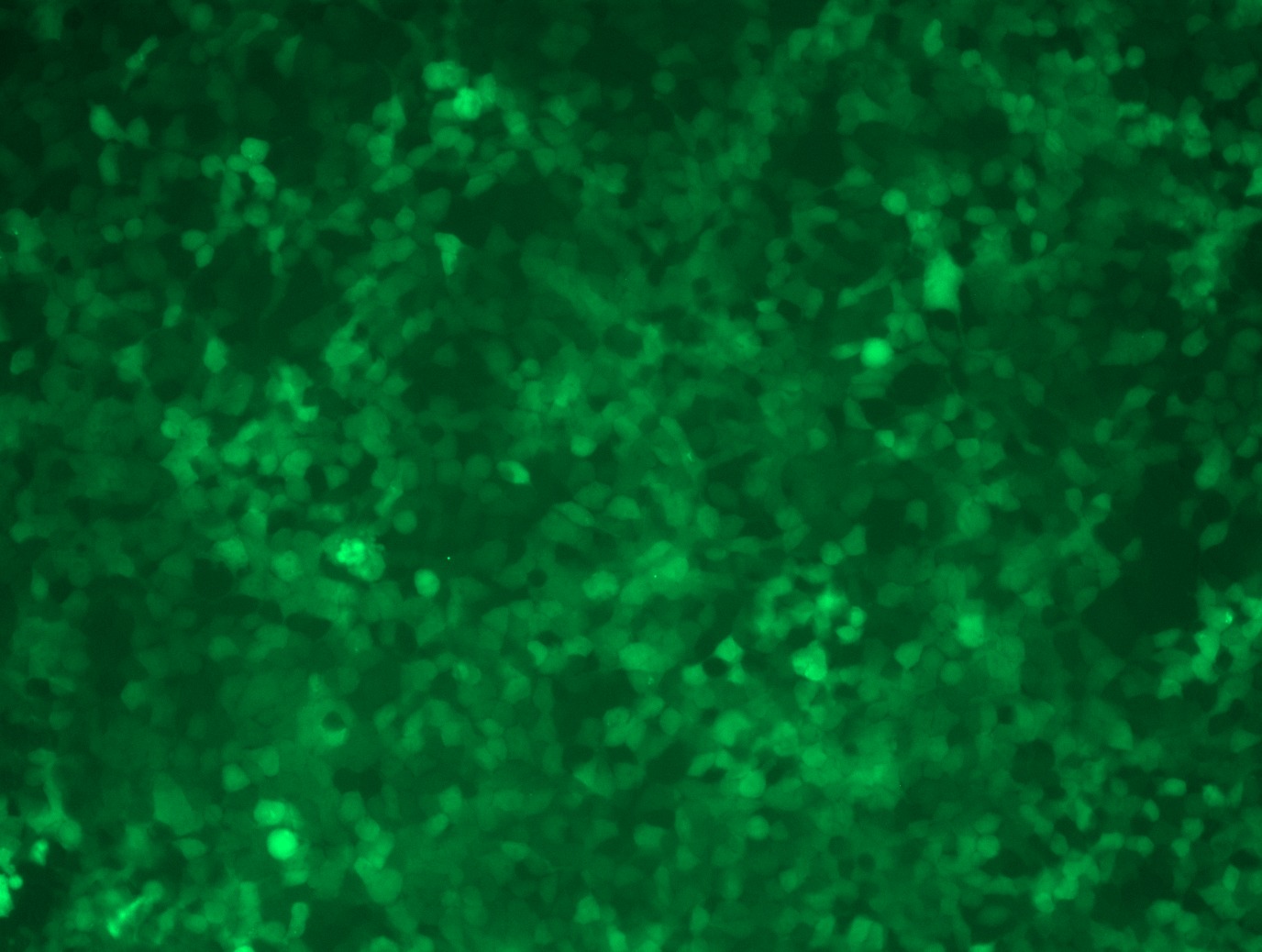Galectin 3 (LGALS3) (NM_002306) Human Tagged ORF Clone Lentiviral Particle
CAT#: RC208785L4V
- LentiORF®
-

Lenti ORF particles, LGALS3 (mGFP-tagged) - Human lectin, galactoside-binding, soluble, 3 (LGALS3), transcript variant 1, 200ul, >10^7 TU/mL
Lentiviral Particles: DDK DDK w/ Puro mGFP
AAV Particle: DDK
Buy this product and get 50% off on the Lenti RapidTiter kit. Use Code: Rapid50
USD 365.00
Specifications
| Product Data | |
| Type | Human Tagged ORF Clone Lentiviral Particle |
| Tag | mGFP |
| Symbol | Galectin 3 |
| Synonyms | CBP35; GAL3; GALBP; GALIG; L31; LGALS2; MAC2 |
| Mammalian Cell Selection | Puromycin |
| Vector | pLenti-C-mGFP-P2A-Puro |
| ACCN | NM_002306 |
| ORF Size | 750 bp |
| Sequence Data |
The ORF insert of this clone is exactly the same as(RC208785).
|
| OTI Disclaimer | The molecular sequence of this clone aligns with the gene accession number as a point of reference only. However, individual transcript sequences of the same gene can differ through naturally occurring variations (e.g. polymorphisms), each with its own valid existence. This clone is substantially in agreement with the reference, but a complete review of all prevailing variants is recommended prior to use. More info |
| OTI Annotation | This clone was engineered to express the complete ORF with an expression tag. Expression varies depending on the nature of the gene. |
| Reference Data | |
| RefSeq | NM_002306.1, NP_002297.1 |
| RefSeq Size | 1017 bp |
| RefSeq ORF | 753 bp |
| Locus ID | 3958 |
| UniProt ID | P17931 |
| Cytogenetics | 14q22.3 |
| Domains | Gal-bind_lectin |
| Protein Families | Secreted Protein |
| MW | 26.2 kDa |
| Gene Summary | This gene encodes a member of the galectin family of carbohydrate binding proteins. Members of this protein family have an affinity for beta-galactosides. The encoded protein is characterized by an N-terminal proline-rich tandem repeat domain and a single C-terminal carbohydrate recognition domain. This protein can self-associate through the N-terminal domain allowing it to bind to multivalent saccharide ligands. This protein localizes to the extracellular matrix, the cytoplasm and the nucleus. This protein plays a role in numerous cellular functions including apoptosis, innate immunity, cell adhesion and T-cell regulation. The protein exhibits antimicrobial activity against bacteria and fungi. Alternate splicing results in multiple transcript variants.[provided by RefSeq, Oct 2014] |
Documents
| Product Manuals |
| FAQs |
| SDS |
Resources
{0} Product Review(s)
Be the first one to submit a review






























































































































































































































































 Germany
Germany
 Japan
Japan
 United Kingdom
United Kingdom
 China
China

